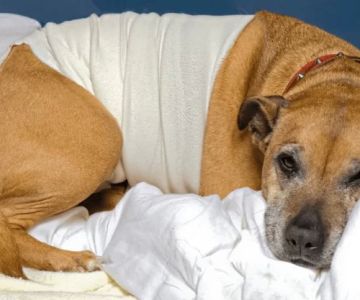- - Understanding Why Cats Hide and Avoid Food
- - Common Reasons Cats Hide and Avoid Food
- - How to Identify Health Issues in Cats
- - Practical Solutions for Dealing with a Cat Avoiding Food
- - When to Seek Professional Help for Your Cat
1. Understanding Why Cats Hide and Avoid Food
It can be alarming when your cat suddenly starts hiding and avoiding food. As independent and sometimes aloof as cats are, these behaviors often indicate that something is wrong. Cats are known for their mysterious ways, but when they hide or avoid eating, it’s often a sign of stress, illness, or discomfort. While a few missed meals may not be cause for concern, prolonged avoidance of food can lead to more serious health problems.
In this article, we’ll explore the common reasons why cats hide and avoid food, and how you can identify potential health issues. We’ll also provide practical solutions to help your cat feel more comfortable and get back to their usual eating habits.
2. Common Reasons Cats Hide and Avoid Food
When your cat starts hiding and refusing food, there are several possible causes. Understanding these reasons can help you address the issue more effectively.
2.1 Stress or Anxiety
Stress and anxiety are some of the most common reasons why a cat might hide and avoid eating. Cats are creatures of habit and may react strongly to changes in their environment. Moving to a new home, changes in routine, loud noises, or the introduction of new pets can all cause a cat to feel stressed. When cats are stressed, they may retreat to a quiet, hidden spot and stop eating as a way to cope with their anxiety.
2.2 Health Problems
Illness or injury is another major reason why a cat may avoid food and hide. Cats are often very good at hiding pain, so it’s important to look for subtle signs of discomfort. Conditions like dental issues, gastrointestinal problems, or kidney disease can cause a cat to lose interest in food. If your cat seems lethargic, has a change in behavior, or shows signs of weight loss, it’s essential to consult a veterinarian.
2.3 Changes in Diet or Food Preferences
Sometimes, the issue might be as simple as a change in diet. Cats can be very particular about their food and may stop eating if their food doesn’t meet their expectations. A sudden change in food, whether it’s a new flavor or brand, can cause your cat to refuse to eat. Similarly, stale or improperly stored food may also make your cat lose interest in their meals.
2.4 Environmental Factors
Environmental factors such as a noisy household, presence of unfamiliar people, or the introduction of other pets can make a cat feel uneasy. Cats are naturally cautious animals and may retreat to a safe, hidden place when they feel threatened or overstimulated. If your cat feels unsafe or overwhelmed, they may avoid eating until they feel more secure.
3. How to Identify Health Issues in Cats
If your cat’s hiding and refusal to eat persists for more than 24 to 48 hours, it’s important to look for other signs that may indicate a health issue. Cats often hide their discomfort, so it’s up to you to be vigilant about their behavior. Here are some signs to watch out for:
3.1 Changes in Litter Box Behavior
Changes in your cat’s litter box behavior, such as not urinating or defecating, can indicate an underlying health issue. Painful conditions like urinary tract infections (UTIs) or constipation can make a cat hesitant to use the litter box and cause them to hide. Monitoring your cat’s bathroom habits can provide important clues.
3.2 Physical Symptoms
Look for physical symptoms such as vomiting, diarrhea, excessive drooling, or changes in their coat (dull or matted fur). These could indicate illness or infection. If your cat is vomiting or seems to have trouble swallowing, dental or gastrointestinal problems might be the cause.
3.3 Behavioral Changes
Behavioral changes, such as increased aggression, excessive sleeping, or a lack of interest in usual activities (like playing), can also point to health issues. If your cat is more withdrawn than usual or seems overly sensitive to touch, this may be a sign of pain or illness.
4. Practical Solutions for Dealing with a Cat Avoiding Food
Once you’ve identified the possible cause of your cat’s behavior, there are several things you can try to help them feel better and start eating again:
4.1 Create a Calming Space
If stress or anxiety is the issue, creating a safe, quiet space for your cat to retreat to can help them feel more secure. Place their food, water, and litter box in a secluded area away from loud noises or disruptions. You can also try using pheromone diffusers or sprays designed to calm cats and reduce anxiety.
4.2 Consult a Veterinarian
If you suspect a health problem, it’s important to consult a veterinarian as soon as possible. A vet will be able to diagnose any medical issues, run necessary tests, and recommend appropriate treatments. Early intervention can help prevent more serious health complications down the line.
4.3 Gradual Diet Changes
If your cat is avoiding food due to changes in diet, try gradually transitioning to the new food. Mix the new food with their old food and slowly increase the proportion of the new food over a period of several days to allow your cat to adjust. You can also experiment with different textures and flavors to find what your cat enjoys most.
4.4 Offer Treats and Enticing Food
Sometimes, offering a more enticing food option can encourage your cat to eat. Try offering treats, baby food, or wet food if your cat usually eats dry food. You can also warm the food slightly to enhance the aroma and make it more appealing.
5. When to Seek Professional Help for Your Cat
If your cat’s behavior doesn’t improve after a few days, or if you notice any concerning symptoms, it’s important to seek professional help. Avoiding food for an extended period can lead to dehydration and malnutrition, which can quickly escalate into more severe health issues. A vet will be able to assess your cat’s condition and recommend the best course of action to get them back to their normal behavior.
If you need assistance in caring for your cat, don’t hesitate to reach out to Hidden Brook Veterinary, where we offer expert advice, services, and products to help you manage your pet’s health and well-being.











